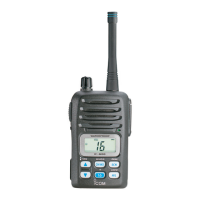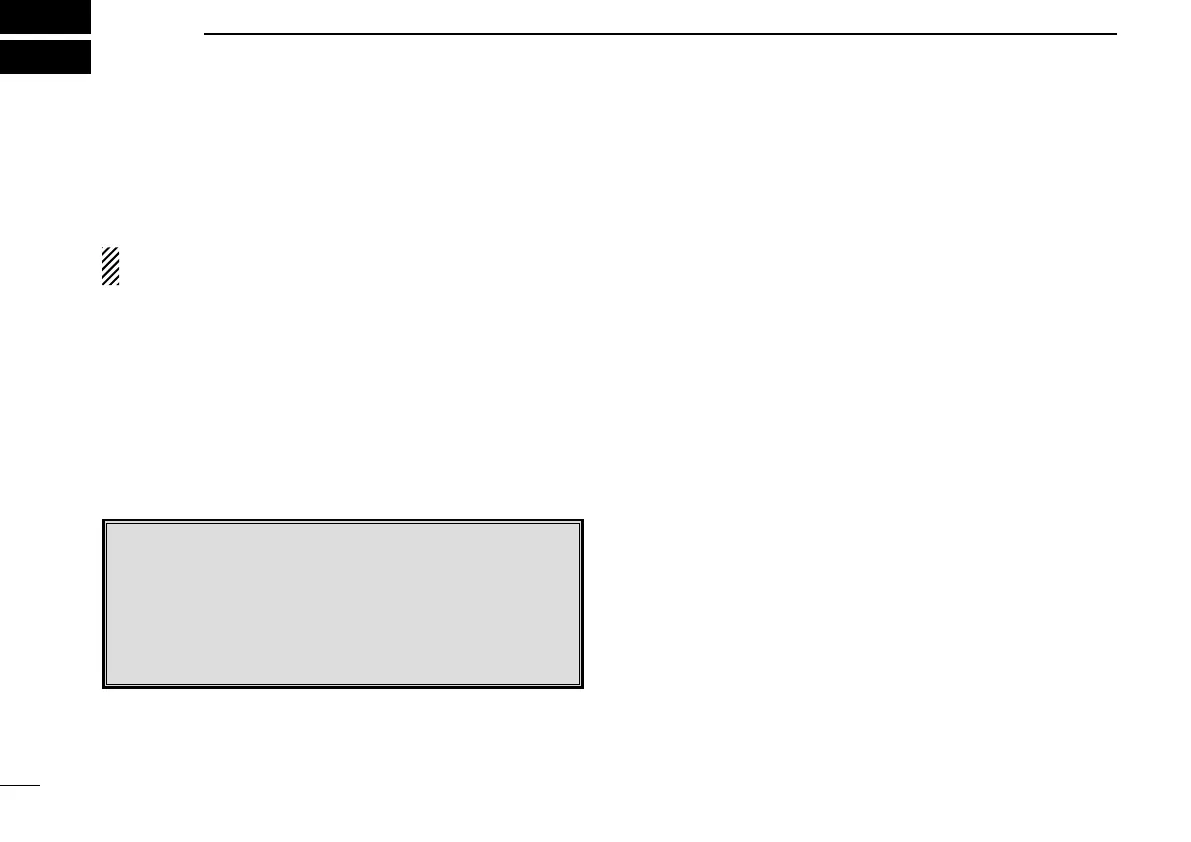■ Battery charging
Prior to using the transceiver for the first time, the battery
pack must be fully charged for optimum life and operation.
CAUTION: To avoid damage to the transceiver, turn it OFF
while charging.
•Recommendedtemperaturerangeforcharging:
0°Cto+40°C(+32°Fto+104°F)
-The Li-ionbatteryisfunctioningwithin–10°C to+60°C
(+14°Fto+140°F)
•Usethespeciedchargers(BC-119N,BC-121NandBC-
152N).NEVER use another manufacturer’s charger.
•Use the suppliedAC adapter forBC-152N. NEVER use
anothermanufacturer’sACadapter.
■ Cautions
NEVER incinerate used battery packs. Internal battery gas
may cause an explosion.
NEVER immerse the battery pack in water. If the battery pack
becomeswet,besuretowipeitdryimmediately(particularly
thebatteryterminals)BEFOREattachingittothetransceiver.
Otherwise, the terminals will become corroded, or cause
connection failure, etc.
NEVERshorttheterminalsofthebatterypack.Also,current
may flow into nearby metal objects, such as a necklace, etc.
Therefore, be careful when carrying with, or placing near
metal objects, carrying in handbags, etc.
AVOID leaving the battery pack in a fully charged, or
completely discharged condition for long time. It causes
shorter battery life. In case of leaving the battery pack unused
for a long time, it must be kept safely after discharge, or use
the battery until the battery indicator shows the middle level,
then remove it from the transceiver.
If your battery pack seems to have no capacity even after
being charged, fully charge the battery pack again. If the
batterypackstilldoesnotretainacharge(orverylittle),a
new battery pack must be purchased.
Recommendation:
Charge the supplied battery pack for a maximum of up to
10hours.Li-ionbatteriesaredifferentfromNi-Cdbatteries
in that it is not necessary to completely charge and dis-
charge them to prolong the battery life. Therefore, charg-
ing the battery in intervals, and not for extended periods is
recommended.
22
9
BATTERY CHARGING

